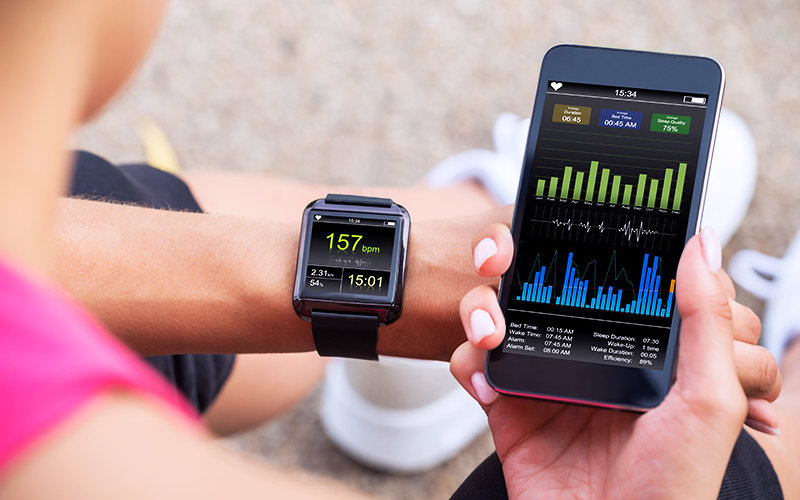
“Jerry Seinfeld once did a skit in which he imagined aliens looking down from space, seeing us scooping up our dogs’ poop, and assuming that it was our pets who were the real masters. Ten years on, what would extraterrestrials deduce if they observed us running around following the commands of little devices on our wrists and checking these tiny screens obsessively every few minutes?” — Excerpt from the introduction to “Unplugged”
If you have been in a gym, at the park or on a hiking trail — even shopping, you have seen the scenario described above.
A growing number of such devices keep track of not only how many steps an individual is taking but also how active he or she is, how many calories are being burned, heart rate, blood pressure, how much sleep per night — and even who is calling their cell phone.
Considering that it’s been reported that Americans are getting heavier, isn’t this a good thing?
Andy Galpin, associate professor of kinesiology at Cal State Fullerton, and his fellow co-authors of the recently published book “Unplugged” say not necessarily.
The book goes beyond wristband fitness trackers, to wearables, heart monitors and even DNA testing. The researchers discovered that what the devices record may not necessarily tell the wearer anything that will actually help them improve fitness and performance. And, they stress, wearers should be enjoying friends, family and life activities beyond how many steps are taken, how fast it was accomplished, and how high their heart rate became.
The subhead of your book is “evolve from technology to upgrade your fitness, performance and consciousness.” Isn’t that what people are doing when they use a fitness device?
The reason the word ‘consciousness’ appears in the title is the primary purpose of the book: to help people realize a vast majority of the fitness and health-related activities and actions they engage in are, in fact, not conscious, and for the most part, specifically cultivated by a third party (product manufacturers, websites, etc.).
Should we throw out our devices?
Our goal is NOT to get people to ditch tech all together, but to get people to recognize its pros and cons, and use them appropriately and judiciously. You don’t need to outsource your intelligence and physiology for a ‘smart’ technology.
Are there times when these devices are good?
The technology is good for several things: accountability, objective measures, tracking over time, awareness and individualization.
However, they are horrible with things like accuracy, validity, context, understanding, efficacy, and long-term and clinically relevant changes in health and fitness.
They also can disconnect people from their own body’s signals, sensations and cues; they foster dependence and cause paralysis by analysis from data overload (rarely resulting in changing actions) and negatively influence self-worth; and they often make things quantified when they should be quality-based.
They also tend to put people in an ‘arms race’ — to buy the new device every year, etc. — and they tend to encourage treatment of symptoms over solving the problem.
What are the key points you want people to get from your book?
We want people to learn how to use fitness technology to improve physical health and their connection to their bodies, because that’s what leads to long-term and sustainable changes and health. Using tech the wrong way can have the opposite effect if they’re not careful.